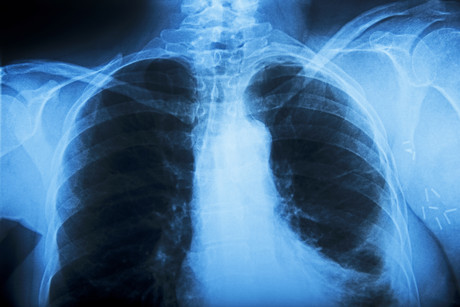Are you genetically susceptible to lung disease?

A collaborative study involving the universities of Western Australia and Queensland has identified 43 new genes that may help those individuals most susceptible to deadly lung diseases such as asthma, emphysema, bronchitis, airway inflammation and airway narrowing.
Chronic obstructive pulmonary disease (COPD) is a reduction in lung function that can lead to symptoms that range from mild to severe. While it may not be a well-known acronym, it is the third-leading cause of death in humans.
The Busselton Health Study has provided a unique set of data with both traditional measurements for risk factors related to disease, with DNA samples. An international team analysed this data and identified 43 genes that will help to better understand how our lungs function and what to do when things go wrong.
According to UWA Clinical Professor Alan James, “It’s likely that in COPD, particularly severe cases, a combination of early development of the lungs and events in life will cause severe lung damage.”
Early exposure to cigarette smoke, poor nutrition and respiratory infections can affect lung function, as well as genetic factors.
“An example of this was seen in the Busselton Health Study, where we studied more than 5000 people and showed that asthma and smoking had separate but additive effects on lung function,” said Professor James.
The results of the Busselton Health Study were compared with data from over 90,000 subjects across Europe and North America.
“The results have led to a much better understanding of how lung function can be decreased at different times of life and what interventions might be used to target specific proteins for prevention and treatment,” said Professor James.
The next step is determining if these 43 genes affect processes within the body that may alter lung function and use this information to create more tailored treatments for sufferers.
“We found that some of these genes influence inflammation (as in asthma and in cigarette smoking and infections), nerve function in smooth muscle (like that around the airways in the lung) and DNA control (as can occur in cigarette smoking),” said Professor James.
“By further examining patients with reduced lung function, we can look at how lung problems may be prevented through lifestyle changes and treated by medications.”
This research was published in the journal Nature Genetics.
Mini lung organoids could help test new treatments
Scientists have developed a simple method for automated the manufacturing of lung organoids...
Clogged 'drains' in the brain an early sign of Alzheimer’s
'Drains' in the brain, responsible for clearing toxic waste in the organ, tend to get...
World's oldest known RNA extracted from woolly mammoth
The RNA sequences are understood to be the oldest ever recovered, coming from mammoth tissue...



